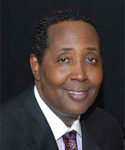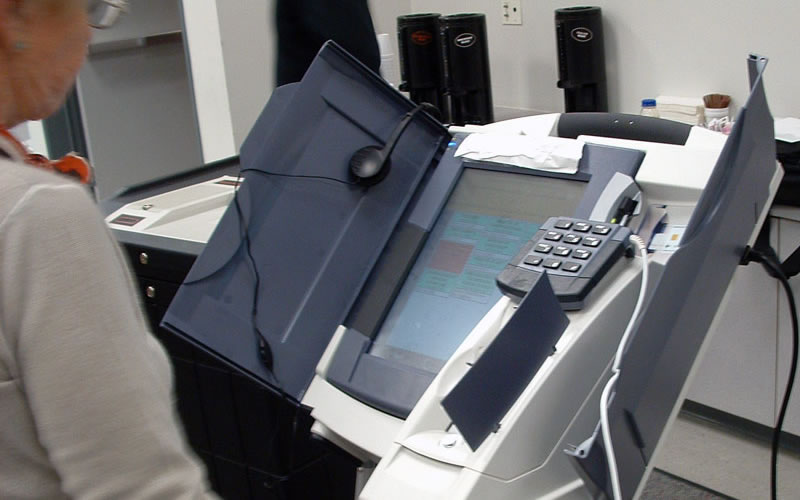INSIDE ISSUE 17.34 | Aug. 24, 2018
NEWS: Lawmakers grapple with question of nuclear regulation
NEWS BRIEF: Senate sees shift in committee chairs, plus Scoppe, poll, more
CALENDAR: Senators explore options for Santee Cooper
COMMENTARY, Brack: S.C. should buy new voting machines now
SPOTLIGHT: Children’s Trust of South Carolina
MY TURN, White: An S.C. example of excellence and exceeding expectations
FEEDBACK: Send us your thoughts
MYSTERY PHOTO: Big,comfortable house
S.C. ENCYCLOPEDIA: Rainbow Row
NEWS: Lawmakers grapple with question of nuclear regulation

By Lindsay Street, Statehouse correspondent | A leak of nuclear material at a Columbia-area uranium fuel plant has prompted lawmakers and neighbors to ask why they weren’t notified as fears of groundwater contamination are renewed.
State and federal regulators say uranium that leaked through the plant floor poses no public threat, and the plant’s owner, Westinghouse Electric, has renewed a pledge to keep the community informed. State, federal and company officials say the plant is operating within guidelines.
But some state lawmakers are looking into the possibility of more state regulation and are questioning the plant’s leak history and shaky communications, which fuel concerns of nearby residents, such as Virginia Sanders of Hopkins.
“Westinghouse had promised they were going to keep the community abreast of what was going on but, right there, they had not kept us abreast that another accident had taken place. We had to get the information from The State newspaper,” Sanders told Statehouse Report.
Background
Westinghouse’s Columbia Fuel Fabrication Facility in Hopkins provides uranium-based fuel for nuclear plants. The plant opened in 1969 and it employs 1,100 people.
In 2011, the plant reported a uranium leak to the U.S. Nuclear Regulatory Commission (NRC). That leak did not become publicly known until 2014. After it became known, Westinghouse held a stakeholder meeting and promised changes in how it communicates with its neighbors, Sanders said.
History appears to have repeated itself with a leak this year, she added. Another leak was discovered in June but it wasn’t until a month later that residents found out about it in the newspaper.
“This is something that shouldn’t be happening in my community period. This is a wrong being committed by Westinghouse that needs to be stopped,” said Sanders, who lives seven miles from the plant and is an activist with the John Bachman Group of the Sierra Club.
The Sierra Club has sent a letter this month supporting a request by Friends of the Earth for the NRC to put a halt to a license renewal request by Westinghouse to keep operating the facility for 40 years.
 Westinghouse, the S.C. Department of Health and Environmental Control (DHEC) and the NRC say the leaks pose no public harm, and the uranium in the soil will not be cleaned up or contained until the plant is decommissioned, as reported earlier this week.
Westinghouse, the S.C. Department of Health and Environmental Control (DHEC) and the NRC say the leaks pose no public harm, and the uranium in the soil will not be cleaned up or contained until the plant is decommissioned, as reported earlier this week.
“Leaks occur any time you’ve got complex mechanisms with pipes, pumps, valves. Leaks happen,” NRC spokesman Joey Ledford told Statehouse Report. “The important thing is the leaks are repaired as soon as possible. He added it is “standard” for leaks to not be cleaned up until after a nuclear fuel plant is decommissioned. He said the plant has not violated any federal or state regulations.
A Westinghouse spokesman reiterated the plant is operating within regulations.
“Westinghouse is committed to acting promptly to report any incidents under our reporting requirements,” Westinghouse Vice President of Global Communications Courtney A. Boone said in a statement to Statehouse Report. “We take these events seriously and continue to work closely with our regulators and are committed to operating at the highest standard. Westinghouse welcomes the opportunity to have ongoing communications with our stakeholders on this and other issues.”
Fears of contamination
Uranium contamination can severely affect kidneys, according to the Centers for Disease Control and Prevention.
 DHEC has 38 monitoring wells around the Westinghouse’s sprawling 1,000-acre property.
DHEC has 38 monitoring wells around the Westinghouse’s sprawling 1,000-acre property.
“(They) are routinely sampled to detect and characterize groundwater contamination at the site. If there is a release into the environment and we determine that it could have potential effects on public health, we would notify citizens,” DHEC spokesman Tommy Crosby said in a statement to Statehouse Report.
NRC said Westinghouse is being monitored carefully for any spread of contaminants.
“There’s been no violations and no citations to date,” Ledford said. He said there is a regularly scheduled “full-scale” environmental inspection of the plant this fall. Those inspections are conducted annually.
Ledford said there has been no indication of any “migration” of nuclear materials either in the 38 monitoring wells around the site or into the deep-water aquifer below for the 2011 and the 2018 leaks.
“If that occured we would order immediate remediation,” Ledford said. He said the plant is required to keep a decommissioning fund to pay for future remediation.
Despite state and federal authorities saying groundwater has not been affected by uranium, Sanders said she’s not buying it, especially in the wake of the historic 2015 flood.
“How can you contain a leak in the soil in soil that’s as porous as soil is in lower Richland (County)?” Sanders said. “I cannot believe that material is just sitting there and not moving … That defies common sense.”
Senators may want more regulation
Some state lawmakers are floating nuclear regulation. S.C. Sen. Darrell Jackson, a Democrat who represents the district where the plant is located, said more needs to be done by the state to ensure safety of residents surrounding the plant.

“We definitely need more regulation,” Jackson said. “We’re still in the process of examining what happened, (but) at minimum there should be some type of method to inform constituents and policymakers so we can get things out. (Also) there needs to be some kind of buffer, maybe that houses that are in certain proximity to the plant will have their well tested on a regular basis.”
Sanders also said she wants the company to pay for a private company to perform water testing for nearby residences.
Republican lawmakers also questioned the plant’s leak history and shaky communication.

“You can’t not take care of your responsibility. We’ve got to look at it,” said S.C. Sen. Paul Campbell, a Charleston Republican who is the new chair the Senate’s Agriculture and Environment Committee.
Sen. Tom Davis, R-Beaufort, said he sees the recent leak and poor communication through the lens of South Carolina Electric & Gas and the $9 billion nuclear plants that were canceled.
“There seems to be a reticence among power companies to disclose information to the public. This would seem to be a continuation of that,” Davis said. “It demonstrates to me just how much work we have to do with our energy policy to restore the public trust again.”
But not all lawmakers were alarmed or even knew about the issue.
S.C. Rep. David Hiott, who chairs the House Agriculture, Natural Resources and Environmental Affairs Committee, said he was unaware of the leaks and any potential regulation would come from House Labor, Commerce and Industry Committee. That committee’s chair, S.C. Rep. Bill Sandifer, said he was unaware of leaks at the facility. He did not offer further comment.
- Have a comment? Send to: feedback@statehousereport.com
NEWS BRIEFS
BRIEFS: Senate shifts committee chairs, plus Scoppe, poll, more

By Lindsay Street, Statehouse correspondent | Four S.C. Senate committees saw leadership changes this summer, all prompted by the resignation of former S.C. Sen. John Courson in June.
Courson, R-Richland, resigned and pleaded guilty to misconduct in office as part of an ongoing corruption probe of state officials.
According to Senate rules, the most senior member of the majority party on a committee becomes chair. Courson chaired the Senate Education Committee. That role transferred to Sen. Harvey Peeler, R-Cherokee, who formerly headed the Senate Medical Affairs Committee.
Sen. Danny Verdin, R-Laurens, became chair of Medical Affairs, leaving his post at Agriculture and Natural Resources. Former Ethics Committee Chair Sen. Paul Campbell, R-Charleston, took the helm of Agriculture and Natural Resources. Sen. Sean Bennett, R-Dorchester, received his first chairmanship and will lead the Ethics Committee.
Next year when the Senate elects officers, there could be another shakeup of committee roles, depending on which senator becomes president pro tempore, a position currently held by Finance Chair Hugh Leatherman.
In other news this week:
![]() Opioid deaths. South Carolina saw a third consecutive year of increases in opioid overdose deaths, according to data released by the South Carolina Opioid Emergency Response Team. The exception to the statewide increase was Horry County, which saw a decline in opioid overdose deaths (Read what makes Horry County different here). An excerpt:
Opioid deaths. South Carolina saw a third consecutive year of increases in opioid overdose deaths, according to data released by the South Carolina Opioid Emergency Response Team. The exception to the statewide increase was Horry County, which saw a decline in opioid overdose deaths (Read what makes Horry County different here). An excerpt:
“The total number of prescription drug-involved overdose deaths, which include non-opioid drugs, increased by 37 percent, from 572 deaths in 2014 to 782 in 2017. Heroin-involved overdose deaths saw a sharp increase of 153 percent, from 57 to 144 deaths. Overall, fentanyl-involved overdose deaths saw the largest increase of 432 percent, from 68 to 362 deaths from 2014 to 2017. Deaths due to methadone, however, continue to decrease from 79 in 2014 to 45 in 2017, which is consistent with national trends, as methadone is used for the treatment of opioid use disorder.”
The State newspaper loses editorial voice. Opinion writer Cindi Scoppe was caught up in McClatchy’s layoffs of 3.5 percent of its nationwide staff. Scoppe wrote for the publication, first as a reporter and then as an editorial writer, for more than 25 years. Read her farewell column here.
Statehouse Report publisher Andy Brack said Scoppe’s departure is a loss for South Carolina: “South Carolinians have relied on Cindi’s informed voice for her dive deeps into major issues impacting the state. This is a big loss for South Carolina. It’s a sad state of affairs when big media put numbers over substance and their social responsibility. They should provide more information, not less, to keep our democracy robust.”
Gubernatorial poll. Democratic gubernatorial candidate James Smith is touting the results of a recent poll that shows him within striking distance of Trump-back Republican incumbent Henry McMaster. The Garin-Hart-Yang Research Group shows Smith trailing McMaster within the poll’s margin of error. The 605 likely S.C. general election voters found 43 percent supporting Smith and 47 percent backing Henry McMaster, with 10 percent undecided and a margin of error of 4.1 percent. The poll also found that McMaster had twice the name recognition, fueling speculation from Smith’s campaign that if they can raise awareness about his candidacy, they could overtake McMaster in November. In 2014, Democratic Sen. Vincent Sheheen of Richland tried to wrest the governor’s office away from incumbent Republican Gov. Nikki Haley, who beat him by more than 14 points.
Scott sides with constituents. U.S. Sen. Tim Scott, R-South Carolina, said he is siding with his constituents on the issue of offshore oil exploration, which is opposed in much of the state. He said he came to the decision despite his belief in offshore exploration as a viable energy source. Oceana South Carolina captured his answer on video. Watch here.
Gender inequality. South Carolina’s women face an uphill battle when it comes to equality, according to a new study by data analyst WalletHub. South Carolina was ranked 45th in the nation for its workplace environment, health, education and political factors. The top five best states for equality were New York, Minnesota, Maine, Nevada and Hawaii. The bottom five were Virginia, Arizona, Texas, Idaho and Utah. Read more.
CALENDAR: Senators explore options for Santee Cooper
By Lindsay Street, Statehouse correspondent | State senators are learning, witness-by-witness over the next few months, that selling, restructuring or doing a combination for the state-owned utility Santee Cooper is complicated.
![]() The next meeting of the Senate Public Service Authority Evaluation and Recommendation Committee is Sept. 5 at a time and location to be announced.
The next meeting of the Senate Public Service Authority Evaluation and Recommendation Committee is Sept. 5 at a time and location to be announced.
Questions over the fate of Santee Cooper and whether the state should privatize or restructure Santee Cooper arose after its minority role in the bungled $9 billion nuclear project in Fairfield County.
A Senate’s special committee tasked with recommending a path forward for the utility held its second meeting Aug. 22. The meeting included five hours of testimony about Santee Cooper assets, including land it leases to homeowners, its lakes and economic development projects.
Recommendations are two or three months away, according to committee chair Sen. Paul Campbell, R-Charleston.
“It’s going to take a while,” he told Statehouse Report. “We have a ton of options to look at.”
Here are other items coming up in other committees:
BRACK: S.C. should buy new voting machines now

By Andy Brack, editor and publisher | State legislators should be demanding, in the loudest possible voices, that our state acquire new voting machines now to assure citizens their votes count. To do otherwise would give a silent nod to a state and national political culture marked by unacceptable levels of spineless do-nothingnness.
 A call for new machines is not to suggest South Carolina’s 13,000 touchscreen machines don’t work. They do. They’re safe, as we’ve written in the past. But they’re old and past their lifespan. Can you imagine, as one security expert wondered, using a phone or a computer made in 2003? That’s when our current voting machines went into service. As a practical matter in these times, you’d probably feel better about voting on machines that aren’t that old with out-of-date electronic guts.
A call for new machines is not to suggest South Carolina’s 13,000 touchscreen machines don’t work. They do. They’re safe, as we’ve written in the past. But they’re old and past their lifespan. Can you imagine, as one security expert wondered, using a phone or a computer made in 2003? That’s when our current voting machines went into service. As a practical matter in these times, you’d probably feel better about voting on machines that aren’t that old with out-of-date electronic guts.
So kudos to S.C. House Ways and Means Chairman Brian White, R-Anderson, for putting the purchase of new machines on the front burner as state lawmakers start to talk about how to spend a $177 budget surplus. Getting new voting machines run by better software and, most importantly, a paper trail that can be audited makes common sense and is smart. More than likely, the feds are going to require us to have new machines anyway before the 2020 primary season gets underway.

If state legislators can’t get their act together on getting new voting machines, voters should channel their outrage at anyone up for re-election in November when we’ll still be using those old touchscreen voting machines without any real accountability).
State election officials go to great lengths to emphasize that the current system is safe and secure. It’s just that there should be something better to provide more accountability. South Carolina is one of five states that currently rely on machines without paper back-ups for accountability.
“Our system has reached end of its life,” said Marci Andino, executive director of the S.C. Election Commission. “That means it is old. The life expectancy of the system is about 12 years.”
It will cost in excess of $50 million for new machines, she said. Currently, there’s about $15 million already budgeted to pay for new voting machines. But the state needs $35 million to $40 million more to purchase an updated system. Which is where the state surplus comes in.
Andino said the commission is being proactive now — meeting with vendors, working on a bid proposal and more — to be able to pull the trigger as soon as money is available. Nevertheless, there will likely be a year-long procurement, training and deployment process to get the machines ready to use.

“We are anticipating that Congress may tell us for 2020 that we may not use a system where we can’t do a post-election audit,” Andino said,
Meanwhile in Washington, lawmakers are struggling over ways to protect the voting process from cyberattacks. Voting machines generally aren’t at risk, they agree, but they worry about cyberattacks focused on voter registration databases or even election-related websites, where there is far more opportunity to create chaos. Imagine if a hacker posted fake precinct locations on a county-level election website.
“Our assessment is that it would be exceedingly complex to change vote totals, and that in trying to attempt to do so [it’s] likely that something would be noticed,” Robert Kolasky, director of the U.S. Department of Homeland Security’s National Risk Management Center, said this week in Senate testimony, according to an ABC News report. “Voter registration files we’ve assessed as more of a vulnerability than the actual vote count process.”
In Washington, U.S. Sen. Lindsey Graham, R-S.C., has been working on legislation to improve election security and add tougher sanctions on Russia for cyberattacks, but both measures are getting stalled by the White House. News surfaced recently that Russian hackers were targeting conservative think tanks and web pages of the U.S. Senate.
“To Republicans, if you think the Russians don’t have you in mind, you are making a great mistake,” Graham said during an election security hearing on Capitol Hill. “They are trying to undermine the democratic process.”
- Have a comment? Send to: feedback@statehousereport.com.
SPOTLIGHT: Children’s Trust of South Carolina
 The public spiritedness of our underwriters allows us to bring Statehouse Report to you at no cost. This week’s spotlighted underwriter is the Children’s Trust of South Carolina, the only statewide organization that works to strengthen families and lead communities to prevent child abuse, neglect and injuries in South Carolina. The organization trains and educates professionals who work directly with families and also funds, supports and monitors proven prevention programs. Children’s Trust is the voice for South Carolina’s children and advocates for strong, well-founded policies that positively impact child well-being. Children’s Trust is home to Prevent Child Abuse South Carolina, KIDS COUNT South Carolina and Safe Kids South Carolina. The Children’s Trust helps to:
The public spiritedness of our underwriters allows us to bring Statehouse Report to you at no cost. This week’s spotlighted underwriter is the Children’s Trust of South Carolina, the only statewide organization that works to strengthen families and lead communities to prevent child abuse, neglect and injuries in South Carolina. The organization trains and educates professionals who work directly with families and also funds, supports and monitors proven prevention programs. Children’s Trust is the voice for South Carolina’s children and advocates for strong, well-founded policies that positively impact child well-being. Children’s Trust is home to Prevent Child Abuse South Carolina, KIDS COUNT South Carolina and Safe Kids South Carolina. The Children’s Trust helps to:
- Research resources: https://scchildren.org/research/
- Advocate: https://scchildren.org/advocate/
- Local partners: https://scchildren.org/local-partners/
WHITE: An S.C. example of excellence and exceeding expectations

By Craig White | I have a similar story [to Brack’s column on Joshie the Giraffe] involving the staff of Charleston Place.

My wife, two small children (ages 10 and 7) and I were visiting Charleston over a decade ago. At dinner the night before we were scheduled to head home to Greenwood, my wife started feeling very ill. We decided to get up early the following morning and get her home. As the night progressed, she grew much worse and was in terrible pain. We bundled the kids up and took her to MUSC’s emergency room. On the way out of Charleston Place, I told the front desk staff that I was taking my wife to the hospital and I would be back as soon as possible to pack and check out. They said not to worry about it and wished us well at the hospital.
At MUSC, we discovered that my wife’s appendix had ruptured, which required immediate emergency surgery. My children and I stayed at the hospital all day and, thankfully, the surgery was successful. Around 7 o’clock that evening, my two exhausted children and I returned to Charleston Place. When I went to the front desk, I expected our belongings were probably in storage and I thought we would have to find another hotel because my wife needed to be hospitalized for several additional days. When I gave the receptionist my name, his immediate response was, “Mr. White, how is your wife?”
This came from a staff member who was not at work there at 6 a.m., so the prior shift had fully communicated what had happened with my family. I explained the situation and he told me that our room was still ours for as long as we needed it and that we would receive a 50 percent discount off the normal room rate for any additional days. I was so grateful for the kindness.
We went to the room and I promised the kids we would go find something to eat. As soon as we entered the room, the phone rang. “Mr. White, how is your wife?” asked the room service staff person. I explained and thanked her for asking. She then informed me that the hotel would be sending dinner up to us at no charge and they even included an ice cream sundae bar for my children. Not only was the front desk aware of our situation, but the staff had communicated across the hotel.
This is the true essence of customer service. This experience happened years ago and I am fairly certain that most of the people who were so incredibly kind to my family and me are no longer with Charleston Place. I am sure you can guess what hotel I recommend to people going to Charleston and where I continue to stay when we go. I am still grateful to Charleston Place for its care and kindness during a stressful time—and always will be.
I have told this story countless times over the years to inspire people to focus on our patients and their families and to always strive to create the best experience.
Craig White is vice president and chief compliance officer of Self Regional Healthcare in Greenwood, where he and his family live. (He’s also a big fan of Statehouse Report!)
- Have a comment? Send it to: feedback@statehousereport.com.
FEEDBACK
Send us your thoughts
We love hearing from our readers and encourage you to share your opinions. But you’ve got to provide us with contact information so we can verify your letters. Letters to the editor are published weekly. We reserve the right to edit for length and clarity. Comments are limited to 250 words or less. Please include your name and contact information.
- Send your letters or comments to: feedback@statehousereport.com
MYSTERY PHOTO: Big, comfortable house

You wouldn’t soon forget this house if you’ve visited it. But where is it? Send your guess to: feedback@statehousereport.com. And don’t forget to include your name and the town in which you live.
Our previous Mystery Photo
 Our Aug. 17 mystery put a spotlight on the Spartanburg County Courthouse. Congratulations to those who correctly identified it: Phillip Carros and Hope Blackley, both of Spartanburg; George Graf of Palmyra, Va.; Jay Altman of Columbia; Bill Segars of Hartsville; and Greg W. Anderson of Edgefield.
Our Aug. 17 mystery put a spotlight on the Spartanburg County Courthouse. Congratulations to those who correctly identified it: Phillip Carros and Hope Blackley, both of Spartanburg; George Graf of Palmyra, Va.; Jay Altman of Columbia; Bill Segars of Hartsville; and Greg W. Anderson of Edgefield.
Blackley said of the courthouse, “Time for a new one!” She should know. She’s Spartanburg County Clerk of Court. Anderson, who recently visited, said he understood the county was in the process of getting a new one.
Interim county administrator Jim Hipp confirmed that a new building is being planned. “The voters of Spartanburg County approved a 1 cent local option capital improvement sales tax, the cornerstone of which is a new Judicial Center. The architectural team for the project is beginning preliminary design. Interestingly, the site selected is the same Magnolia St site as the current Courthouse, making planning and construction critical while affirming a commitment to downtown Spartanburg. You can read some detail on our web site: www.spartanburgcounty.org
Segars added this info on the current courthouse: “Harold Woodward, a Spartanburg native, designed this building and many others in the upstate area. He was also instrumental in setting up the architectural program at Clemson University.”
Graf provided more detail: “According to Wikimedia, the current Spartanburg County Courthouse is the fifth courthouse in Spartanburg’s history.
“According to scpictureproject.org, both the county and the town were named for the Spartan Regiment, a local unit that fought in the Revolutionary War. Three other courthouses replaced the original over the following generations, with the current one completed in 1956.”
Thanks all!
Send us a mystery: If you have a photo that you believe will stump readers, send it along (but make sure to tell us what it is because it may stump us too!) Send to: feedback@statehousereport.com and mark it as a photo submission. Thanks.
S.C. ENCYCLOPEDIA
HISTORY: Rainbow Row

S.C. Encyclopedia | The vibrant pastel paint colors applied to the exterior of neglected buildings between 79 and 107 East Bay Street became one of the earliest and most potent symbols of Charleston’s emerging preservation movement.
In 1931, the decorator and preservationist Dorothy Haskell Porcher Legge purchased and began renovating a house at 99–101 East Bay Street. Legge’s house stood amid a row of buildings that dated from the early eighteenth century and had originally served as the businesses and residences of prosperous merchants.
The ground floors were used as stores and counting rooms; living quarters occupied the upper floors. Once located along the wharves of Charleston harbor, these buildings became neglected after the docks silted and mercantile activities moved elsewhere. Inspired by the bright pastel colors associated with colonial Caribbean architecture, Legge’s nonhistorical, attention-grabbing paint scheme sought to encourage their rehabilitation.
As the buildings along East Bay Street were restored in the 1930s, 1940s, and 1950s, the block became known as Rainbow Row. In the early twenty-first century this picturesque collection of buildings was among the most widely recognized images of Charleston and symbolized the role of preservation as a stimulus for urban revitalization.
— Excerpted from an entry by Daniel J. Vivian. To read more about this or 2,000 other entries about South Carolina, check out The South Carolina Encyclopedia, published in 2006 by USC Press. (Information used by permission.)
ABOUT STATEHOUSE REPORT
Statehouse Report, founded in 2001 as a weekly legislative forecast that informs readers about what is going to happen in South Carolina politics and policy, is provided to you at no charge every Friday.
■ Editor and publisher: Andy Brack, 843.670.3996
■ Statehouse correspondent: Lindsay Street
More
■ Mailing address: Send inquiries by mail to: P.O. Box 22261, Charleston, SC 29407
■ Subscriptions are free: Click to subscribe.
■ We hope you’ll keep receiving the great news and information from Statehouse Report, but if you need to unsubscribe, go to the bottom of the weekly email issue and follow the instructions.
© 2018, Statehouse Report. All rights reserved.


